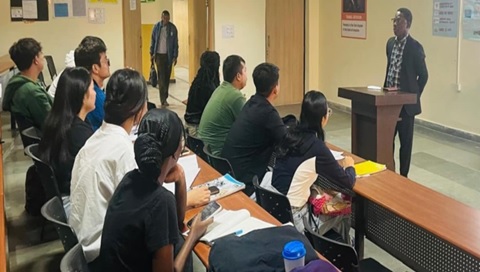LIBERIA – On Tuesday, December 17, 2024, Capitol Hill was the site of intense clashes as protesters, led by Janjay Baikpeh and the Concerned Citizens for the Protection of the Constitution and Rule of Law, confronted police officers in a demonstration that quickly soared into chaos. The protest, initially intended to demand the protection of constitutional order, raised substantial questions about its true motives and the intentions of its leaders.
Janjay Baikpeh, a former Grand Bassa County Superintendent and a prominent member of the Coalition for Democratic Change (CDC), spearheaded the protest, which drew attention. However, the demonstration, which turned violent near the Capitol Building, was met with sharp criticism, particularly from activist Martin K. N. Kollie. In a strongly worded statement titled “Why the Protest Failed – The Protest Leaders Had a Motive to Paint the Government ‘Black’ and Create Chaos”, Kollie condemned Baikpeh and his fellow organizers, accusing them of staging the event for political gain rather than for genuine concern for the country’s well-being.
Kollie, a staunch critic of corruption and poor governance, argued that protests should be driven by legitimate concerns rooted in patriotism, not manipulated for political advantage. He pointed to Baikpeh’s involvement with the CDC and his failure to account for his actions during his tenure as a government official. Kollie criticized Baikpeh’s portrayal of himself as a victim, claiming that Baikpeh had staged a scene showing him with red Kool-Aid on his clothing to depict a police assault. “How can you ‘bleed’ and still sit so relaxed instead of rushing to a hospital? This is fake, ridiculous, hypocritical, and dishonest,” Kollie asserted.
Kollie also accused the protest’s leadership of orchestrating the unrest to destabilize the government, emphasizing their failure to address national issues such as lawmakers’ excessive salaries, the country’s struggling healthcare and education systems, and rising unemployment during their time in power. He argued that these leaders had misused state resources, built private mansions, and contributed to the poverty that continues to afflict ordinary Liberians. “They looted state resources, built private mansions, and abused power. They kept you in poverty,” Kollie remarked.
While Kollie’s remarks found support among some, they also ignited backlash from others. Bob K. Queminee, a vocal critic of Kollie, defended the protesters’ right to express their grievances, questioning the validity of Kollie’s critique. “Being a CDCian doesn’t mean he [Janjay Baikpeh] can’t be a concerned citizen. You’re a diehard fanatic of Mr. Boakai and yet you criticize him at times. Does it mean you shouldn’t do so?” Queminee challenged, referencing Kollie’s own critical stance toward President Boakai. He further criticized the government’s leadership, calling it a failure and remarking, “One year down of misrule and we’re awaiting the balance five years.”
Other reactions, such as those from Luther Mendin, echoed Kollie’s concerns about the political exploitation of protests. “It’s clear that some leaders are using these gatherings for their own political gain rather than addressing the real issues facing our country, and this is sad,” Mendin stated, urging a shift in focus from partisan agendas to genuine reform. He also called for a revival of movements like #BringBackOurMoney, which demanded accountability for public funds.
The events at Capitol Hill highlighted Liberia’s growing political divide, with competing narratives over the legitimacy of the protest. While some view it as an exercise in constitutional rights and democracy, others see it as a politically charged attempt to undermine the government. This stark contrast underscores the urgent need for an issue-based, transparent political discourse that prioritizes the nation’s welfare over partisan interests.
Amid these divisions, Kollie’s call for peaceful, intellectual, and ideological activism continues to resonate with many Liberians. His insistence on tackling the country’s systemic challenges through genuine reform and accountability remains a key focus for those seeking long-term progress. As the debate over the protest intensifies, it is evident that Liberia’s path forward must be guided by transparent governance and a commitment to the rule of law.







